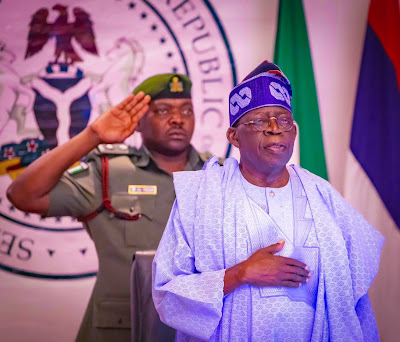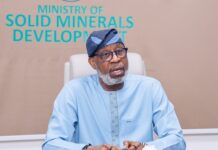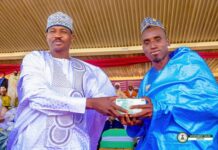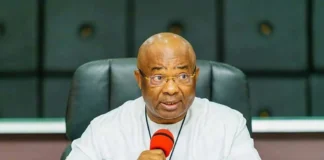In an exclusive survey conducted by CMC Connect LLP, a Lagos-based strategic communication firm, in collaboration with Analysts Data Services and Resources (ADSR), it has been revealed that 62% of Nigerians believe that the nation will make significant progress under President Bola Tinubu’s administration.
The survey spanned across the country’s six geopolitical zones and attracted 1,714 participants who shared their sentiments on the first 60 days of Tinubu’s presidency.
The report indicates that while 38% of respondents expressed doubts regarding the country’s forward trajectory under the current administration, an overwhelming majority of 62% remain optimistic about the future of Nigeria under Tinubu’s leadership. Though respondents expressed some level of dissatisfaction with the initial 60-day performance of the administration, their positive outlook on the coming years was evident.
“38% do not see the country moving forward under the current administration, while 62% do,” the report reads.
“By and large, respondents are less satisfied with the first 60 days of the current administration, but they are more optimistic about the country moving forward under the current administration.”
According to the survey findings, respondents showed strong satisfaction with the suspension of Godwin Emefiele as the Governor of the Central Bank of Nigeria (CBN) and the appointment of Abdulrasheed Bawa as chairman of the Economic and Financial Crimes Commission (EFCC).
Furthermore, the endorsement of both the existing and redesigned naira notes as legal tender received significant support. However, concerns over potential higher energy costs led to dissatisfaction regarding the proposed removal of electricity subsidies.
The unification of exchange rates and the government’s target of achieving an average growth rate of 6% in the next four years were moderately appreciated by respondents. Regarding the arrangement of the ministerial list, there was considerable dissatisfaction, underlining the importance of a diverse and representative cabinet.
Mixed views were observed regarding the removal of petrol subsidies, with a significant proportion expressing strong concerns. This highlights the sensitive nature of energy policy changes.
On the other hand, the planned reopening of land borders, the release of fertilizers and grains to farmers and households, the appointment of new Service Chiefs, and the dissolution of governing boards of government agencies obtained favorable responses.
Respondents also showed support for the suspension of the import tax change levy on certain vehicles, the introduction of a green tax on single-use plastics, and the increase in excise duty on locally manufactured products. However, the establishment of the Nigerian education loan fund received mixed satisfaction levels, indicating the need for a balanced approach to education financing.
“There is substantial dissatisfaction with the arrangement of the ministerial list among respondents, emphasizing the relevance of diversified and representative cabinet selections,” the report reads.
“The removal of petrol subsidy generates mixed views, with a significant portion becoming disheartened and harboring strong concerns, showing the sensitive nature of energy policy changes.
“Planned opening of more land borders, and the release of fertilizers and grains to farmers and households enjoy favorable reception.
“Respondents support the appointment of Service Chiefs and the dissolution of governing boards of government agencies.
“The suspension of the import tax change levy on certain vehicles, the introduced green tax on single-use plastics, and excise duty escalation on locally manufactured products, receives favorable thumbs up.
“The establishment of the Nigerian education loan fund garners mixed satisfaction levels, underscoring the need for a balanced approach to education financing.”
Furthermore, the survey revealed that 33% of respondents did not participate in the last election, while 67% exercised their voting rights.
The report added that, “among those who voted, 51% voted for the All Progressives Congress (APC), 5% for the People’s Democratic Party (PDP), 32% for the Labour Party (LP), 2% for the New Nigeria Peoples Party (NNPP), and 10% for other parties.”
These survey findings provide valuable insights into the public’s perception of Tinubu’s administration, indicating that despite prevalent economic challenges, a majority of Nigerians maintain a positive outlook for the future of the country.















